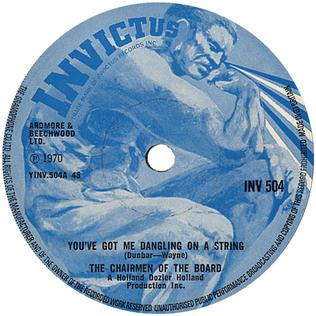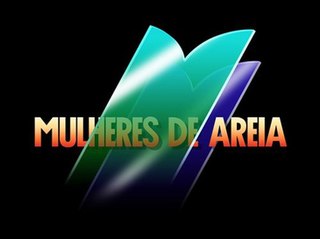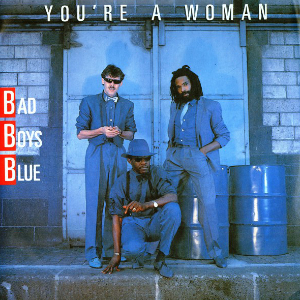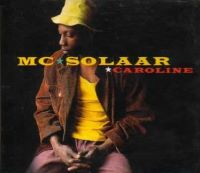Related Research Articles

Alexander Bengt Magnus Bard is a Swedish musician, author, lecturer, artist, songwriter, music producer, TV personality, religious and political activist, and one of the founders of the Syntheist religious movement alongside his co-author Jan Söderqvist. Bard is a member of music band Army of Lovers.
Bad Boys may refer to:
5000 Volts is the name of a British disco recording act that achieved success throughout Europe during the 1970s. The group consisted of vocalists Tina Charles and Martin Jay, with a changing group of session musicians.

Ebba Grön was a Swedish punk band formed in Stockholm, Sweden, in 1977. Ebba Grön consisted of Joakim Thåström, Gunnar Ljungstedt (drums) and Lennart Eriksson. Thåström, Ljungstedt and Eriksson were also known as Pimme, Gurra and Fjodor. After the release of their second album in 1981, they were joined by a fourth member, Anders Sjöholm, also known as Stry Terrarie, on keyboard. The group was disbanded on 21 February 1983.

Bad Boys Blue are a German pop group formed in Cologne in 1984. The group performed many international hits including "You're a Woman", "Pretty Young Girl", "I Wanna Hear Your Heartbeat", and "Come Back and Stay".

Anders Wilhelm Axel Wollbeck is a Swedish songwriter and producer. He plays the guitar and keyboard. He is part of the songwriting and production duo Vacuum together with Mattias Lindblom.
"Barbara Ann" is a song written by Fred Fassert that was first recorded by the Regents as "Barbara-Ann". Their version was released in 1961 and reached No.13 on the Billboard Hot 100 chart. The more famous version was recorded by the Beach Boys for their 1965 in-house live album Beach Boys' Party! In December, "Barbara Ann" was issued as a single with the B-side "Girl Don't Tell Me", peaking at No. 2 in the U.S. and No. 3 in the UK. The Regents' original version was featured in the 1973 film American Graffiti and later included on the soundtrack album.

The Beach Boys are an American rock band formed in Hawthorne, California, in 1961. Their discography from 1961 to 1984 was originally released on the vinyl format, with the 1985 album The Beach Boys being the group's first CD release. The Beach Boys' catalogue has been released on reel-to-reel, 8-track, cassette, CD, MiniDisc, digital downloads, and various streaming services.

No Reservations is the debut studio album by British-Asian musician Apache Indian, released in January 1993 by Island Records and their subsidiary Mango. The musician and singer recorded the album primarily in Jamaica's Tuff Gong studios with producers including Simon and Diamond, Bobby Digital, Phil Chill and Sly Dunbar. It follows, and includes, Apache Indian's 1990–91 singles – "Move Over India", "Chok There" and "Don Raja" – which saw him pioneer a fusion of Jamaican ragga and Indian bhangra later known as bhangramuffin.

Weeping Willows is a Swedish indie rock group that started in 1995.

"(You've Got Me) Dangling on a String" is a 1970 soul music song by the Chairmen of the Board. The single reached No. 38 on the US Billboard Hot 100, No. 19 on the US Billboard R&B chart, and No. 5 on the UK Singles Chart. The song was written by Ronald Dunbar and Edythe Wayne.

"Big in Japan" is the debut single of the German synth-pop band Alphaville from their 1984 album Forever Young.

"Sweat (A La La La La Long)" is a song by Jamaican reggae fusion band Inner Circle, released in July 1992 by Warner Records as the lead single from their twelfth album, Bad to the Bone (1992). It was written by the band's Ian and Roger Lewis, and produced by them with another bandmember, Touter Harvey. The song became a number-one hit in Belgium, Germany, Israel, the Netherlands, New Zealand, Portugal, Switzerland, and Zimbabwe. The music video, depicting the group on the beach, was directed by Mathias Julien. Australian music channel Max included "Sweat" in their list "1000 Greatest Songs of All Time" in 2017.

Mulheres de areia is a Brazilian telenovela produced by the TV Globo and aired between 1 February 1993 and 24 September 1993, in 203 episodes. It was written by Ivani Ribeiro with the contribution of Solange Castro Neves and directed by Wolf Maya, Ignácio Coqueiro, Andre Schultz and Carlos Magalhães. It is a remake of the soap opera of the same name that aired on the now-defunct Rede Tupi from 1973 to 1974, when Eva Wilma portrayed the two main characters of the plot, it is currently airing it's reruns.
This article contains the discography of American singer Eartha Kitt.

"The Boys" is a song recorded by South Korean girl group Girls' Generation for their third Korean language studio album with the same name. Composed and arranged by Teddy Riley, Taesung Kim, DOM, and Richard Garcia, the song was described as a dance-pop, electropop and R&B song with elements of hip hop that lyrically discusses female attractiveness. The Korean version was released on October 18, 2011, by SM Entertainment as the lead single from the album. An English version was subsequently released in the United States on December 20, 2011, by Interscope Records and Universal Music Group in order to expand the group's popularity outside their native country.

Bad to the Bone is an album by the Jamaican reggae band Inner Circle. Two versions of the album were released in 1992, and a U.S. re-issue titled Bad Boys was released in 1993. The U.S. re-issue won the Grammy Award for Best Reggae Album. Bad to the Bone and Bad Boys contain the singles "Sweat ", "Rock with You", and "Bad Boys".

1 is the debut studio album by Swedish singer Zara Larsson. It was released on 1 October 2014 by TEN Music Group and Universal Music Group. The album is certified platinum in Sweden and gold in Denmark, for selling 40,000 and 10,000 units in the countries respectively. On 30 January 2024, the album was released worldwide on all digital platforms.

"You're a Woman" is a song by Bad Boys Blue, released in April 1985 as the second single from their debut studio album, Hot Girls, Bad Boys (1985). It was a hit across Europe, reaching number 8 in West Germany, number 1 in Austria and number 2 in Switzerland.

"Caroline" is a 1992 hip hop and ragga song recorded by French rapper MC Solaar. Written by Solaar with a music composed by Jimmy Jay, it was the third single from his debut studio album Qui sème le vent récolte le tempo, on which it appears as the tenth track, and was released in April 1992. It achieved success in France where it was a top five hit and helped Solaar to launch his own musical style.
References
- ↑ Gehr, Richard (August 1992). "World Beat". Spin. SPIN Media LLC: 79–. ISSN 0886-3032.
- ↑ Maxi & Efti - Bad Boys (Song) Swedishcharts.com. Retrieved 26 March 2017.
- ↑ "The Hot 100 Chart - Week of June 6, 1992". Billboard. 2 January 2013. Retrieved September 11, 2021.
- ↑ Maxi & Efti - Ragga Steady (Song) Swedishcharts.com. Retrieved 26 March 2017.
- ↑ Midi, Maxi & Efti - Masenko (Song) Swedishcharts.com. Retrieved 26 March 2017.
- ↑ "Mulheres de Areia (1993) - Teledramaturgia". teledramaturgia.com.br. Archived from the original on 5 August 2014. Retrieved 15 January 2022.